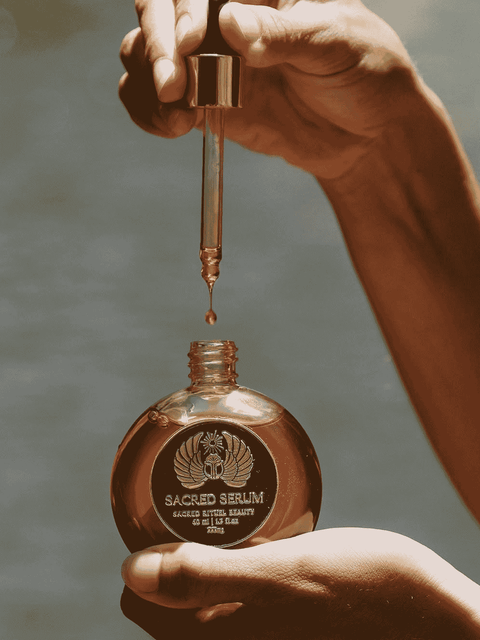
How To Read Labels: Identifying Truly Natural Skincare
Key Takeaways:
- Transparency Signals Brand Integrity: Brands that fully disclose ingredient sources, processing methods, and manufacturing standards show true commitment to clean, natural skincare.
- Avoid Common Ingredient Red Flags: Synthetic fragrances, parabens, sulfates, and phthalates often hide behind vague terms on labels; reading carefully helps protect your skin and health.
- Natural Doesn’t Mean One-Size-Fits-All: Even with natural skin care products, individual skin sensitivities vary. Patch testing and understanding ingredient functions help ensure the best results.
Labels can whisper promises of purity, but do they truly deliver? In the skincare aisle, countless jars and bottles wear words like “natural,” “clean,” or “organic” like a badge of honor — yet many hide long lists of synthetic ingredients beneath the surface. With so many brands competing for your trust, distinguishing between marketing and genuine integrity becomes essential.
At Sacred Rituel, nature isn’t a trend—it’s our foundation. Every formula is carefully handcrafted with 100% organic, cold-pressed botanicals, infused with decades of herbal wisdom. From our nutrient-rich natural face moisturizers to deeply hydrating natural body oils, we are committed to offering truly natural skin care products that nurture your skin and honor the planet.
In this piece, we’ll break down how to read natural skincare labels so you can confidently choose products that reflect your values and deliver real nourishment.
Why Reading Labels Matters
When it comes to natural skin care products, the label holds more power than the front of the packaging ever reveals. Many companies use terms like “natural” or “clean” loosely, as these words aren’t always regulated in the skincare industry. That means a product can contain a handful of botanical ingredients and still be loaded with synthetic fillers, preservatives, or fragrances that may irritate your skin or compromise your health.
Understanding natural skincare labels gives you the ability to look past marketing language and truly assess what you’re putting on your skin. After all, your skin absorbs much of what you apply to it. By learning to read labels carefully, you can select products—like a natural moisturizer or natural body oil—that deliver real nourishment without hidden compromises.

Understanding Common Label Claims
Not all label claims are created equal. Words like “natural,” “organic,” “clean,” and “non-toxic” often sound reassuring but can mean very different things depending on who’s using them.
- Natural simply means the product contains ingredients derived from nature. A study of natural ingredients in cosmetics highlights that, without strict regulation, even a product with one natural ingredient can carry the label.
- Organic refers to ingredients grown without synthetic pesticides, fertilizers, or GMOs. Look for certifications that verify organic standards.
- Clean usually indicates the absence of harmful ingredients like parabens, phthalates, or sulfates. However, each brand may define “clean” differently.
- Non-toxic suggests the product is free from ingredients linked to health concerns, though this term is not standardized.
At Sacred Rituel, these aren’t just marketing words. We formulate our natural face moisturizers and body oils with certified organic, cold-pressed botanicals, ensuring every ingredient is chosen for its purity, potency, and safety. Transparency isn’t a choice—it’s our standard.
Ingredients To Look For In Truly Natural Skincare
When selecting natural skin care products, knowing what should be on the label is as important as knowing what to avoid. High-quality, plant-based ingredients offer skin nourishment, hydration, and healing properties that synthetic formulas simply can’t replicate. Here’s what to look for when reading natural skincare labels:
Cold-Pressed Botanical Oils
These oils are extracted without heat or chemicals, preserving their full nutrient profile. Oils like Jojoba, Rosehip, Camellia, Chia, and Baobab deliver essential fatty acids and antioxidants directly to your skin. They absorb quickly, making them perfect for a natural moisturizer or natural face moisturizer that leaves your skin hydrated, soft, and non-greasy.
Herbal Extracts
Herbs such as Chamomile, Calendula, Arnica, and Helichrysum bring powerful calming and reparative properties. They help reduce redness, irritation, and inflammation, making them ideal for sensitive or acne-prone skin. These botanical extracts work synergistically to promote healing and restore skin balance naturally.
Nutrient-Rich Superfoods
Superfoods like Sea Buckthorn, Amla, and Pomegranate contain vitamins, minerals, and antioxidants. Plant-derived antioxidants are significant in skin health because they support collagen production, boost elasticity, and protect the skin from environmental stressors. Incorporating these ingredients into natural skin care products ensures long-term skin health and visible radiance.
Aromatherapeutic Essences
Plant-based essences such as Lavender, Rose, and Gardenia offer more than just a pleasant scent. They contribute to the product’s calming effect on the skin and the mind, promoting relaxation while delivering additional anti-inflammatory and antibacterial benefits. These essences elevate the entire skincare ritual, making daily care a soothing experience.
Ingredients To Avoid: Red Flags On The Label
While some ingredients nourish your skin, others may do more harm than good, even if the product claims to be “natural.” Many synthetic additives can cause irritation, disrupt hormones, or simply clog pores. When reading natural skincare labels, watch out for these common red flags:
- Synthetic Fragrances: Often listed simply as “fragrance” or “parfum,” these blends can contain dozens of undisclosed chemicals. They may trigger allergic reactions, skin irritation, or long-term sensitivities, especially for those seeking clean, natural skin care products. Always choose products scented with essential oils or botanical extracts instead.
- Parabens: These widely used preservatives (like methylparaben or propylparaben) help extend shelf life but have been linked to hormone disruption. Repeated exposure can accumulate over time, raising potential health concerns even in small amounts. Natural moisturizers and natural body oils can use safer, plant-based preservation methods without compromising safety.
- Sulfates: Commonly found in cleansers and labeled as sodium lauryl sulfate (SLS) or sodium laureth sulfate (SLES), sulfates create foam but can strip the skin’s natural oils. This leads to dryness, irritation, and imbalance, particularly for sensitive skin. Truly natural face moisturizers avoid these harsh surfactants entirely.
- Phthalates: These are used to make products more flexible or to stabilize fragrances, and phthalates are suspected endocrine disruptors. They may not always appear on ingredient lists, often hiding under vague terms like “fragrance.” Opt for brands that fully disclose all ingredients and avoid artificial fragrance blends.
- Formaldehyde-Releasing Preservatives: Ingredients like DMDM hydantoin and quaternium-15 slowly release formaldehyde over time to prevent microbial growth. Exposure may cause allergic reactions and irritation, particularly for those with sensitive or compromised skin barriers. Natural skin care products rely on safe, plant-derived alternatives instead.

Certifications And Third-Party Verifications: What They Really Mean
Certifications can offer a helpful layer of trust when evaluating natural skincare labels. However, not all seals carry the same weight, and it’s important to understand what each one guarantees. Here’s a simple breakdown of the most meaningful certifications to look for:
USDA Organic
This certification ensures that the product contains at least 95% organically grown ingredients, free of synthetic fertilizers, pesticides, and genetically modified organisms. This means the botanical ingredients are cultivated with care for natural skin care products, preserving their full nutritional integrity. USDA Organic is one of the industry's most stringent and trusted certifications.
Ecocert
Ecocert evaluates not only the ingredients but also the manufacturing process, packaging, and overall environmental impact. Products with this label meet high standards for sustainability and ingredient purity. It’s an excellent sign for buyers who value natural skin care products and eco-conscious business practices.
Leaping Bunny / Cruelty-Free
These certifications guarantee that the product and its ingredients were not tested on animals. While this doesn’t necessarily speak to the purity of a natural moisturizer or natural face moisturizer, it does reflect a brand’s ethical commitment to humane practices. For many conscious consumers, this is an essential non-negotiable.
Non-GMO Verified
This label ensures that no plant ingredients were genetically modified, keeping the formula as close to nature as possible. Non-GMO certification is especially meaningful for products containing plant oils, superfood extracts, or herbal infusions often found in natural body oils. It helps protect both your health and environmental biodiversity.
Made Safe
The Made Safe certification screens for thousands of known harmful ingredients, ensuring the product is free of toxic chemicals. This provides extra reassurance for those seeking truly clean and natural skin care products that prioritize safety without compromise.
Brand Transparency: A Key Indicator Of Quality
When reading natural skincare labels, sometimes what the brand doesn’t say is just as important as what it does. True transparency means being open about ingredient sourcing, processing methods, and manufacturing standards. A brand that freely shares this information shows confidence in the purity and integrity of its products.
Full Ingredient Disclosure
High-quality brands list every ingredient, even in small concentrations. They don’t hide behind vague terms like “fragrance” or “proprietary blend.” When you see a full list of recognizable, plant-based ingredients—like those found in a natural face moisturizer or natural body oil—it’s a good sign you’re getting a genuinely natural product.
Sourcing And Processing Details
Brands committed to transparency often share where their ingredients come from and how they’re processed. For example, cold-pressed extraction preserves nutrients that heat-based methods destroy, ensuring maximum skin benefits. Knowing your natural skin care products are made with thoughtfully sourced botanicals helps build trust.
Manufacturing Practices
Clean manufacturing is just as crucial as clean ingredients. Ethical brands will provide insights into their small-batch production, sustainable packaging, and eco-friendly operations. These practices demonstrate a holistic commitment to your well-being and the environment.

Final Thoughts
Choosing natural skincare is about aligning your daily rituals with your deeper values—honoring both your skin’s well-being and the integrity of nature. As consumers become more mindful, the demand for authenticity in skincare continues to grow, challenging brands to rise above empty claims and deliver true transparency. The journey toward natural skincare isn’t just a trend—it’s a return to simplicity, purity, and wisdom in nature’s design.
Read also:
- Natural Vs. Organic: Key Differences In Skincare Products
- Everything You Need To Know About Hyperpigmentation
- How To Treat Dry Skin On Face: Best Remedies And Tips
Frequently Asked Questions About Natural Skincare Labels
Are all plant-based skincare products considered natural?
Not necessarily. While plant-based ingredients are a good start, some products still include synthetic preservatives, fillers, or fragrances alongside botanical extracts. Always check the full ingredient list on natural skincare labels to ensure you're getting truly natural skin care products.
Can natural skin care products cause allergic reactions?
Even natural ingredients can trigger sensitivities in some individuals, especially if you have specific allergies. It's important to patch test new products like natural face moisturizers before use. To minimize risks, look for products that use hypoallergenic, well-sourced botanicals.
Do natural moisturizers work for oily skin?
Yes, many natural moisturizers balance oil production without clogging pores. Ingredients like jojoba oil closely mimic the skin’s natural sebum, helping regulate excess oil. Natural Skincare Labels often highlight such ingredients, making them suitable for oily and combination skin types.
Why are cold-pressed oils preferred in natural skin care products?
Cold-pressed oils retain more nutrients, antioxidants, and fatty acids because they avoid heat and chemical extraction. This makes them more effective for hydrating, healing, and protecting the skin. Brands like Sacred Rituel rely on this method for superior ingredient quality.
How long do natural body oils last compared to synthetic lotions?
Natural body oils often have a shorter shelf life since they avoid synthetic preservatives. However, when stored correctly in cool, dark places, they remain potent for many months. The benefits of nutrient-rich, chemical-free hydration far outweigh the shorter storage time.
Can natural skincare labels guarantee sustainability?
Labels can provide clues, but sustainability also depends on sourcing, farming, and manufacturing practices. Look for certifications and transparent brand messaging about their environmental efforts. Ethical brands often share details on ingredient origin and farming partnerships.
Are fragrance-free products always better for sensitive skin?
Not always. Some fragrance-free products still contain other irritating chemicals. Products using light essential oils or botanical extracts, like Sacred Rituel’s natural face moisturizers, can offer calming aromatherapy while remaining gentle on sensitive skin.
Is there a difference between “natural” and “naturally derived” on skincare labels?
Yes, “natural” typically means minimally processed ingredients directly from nature, while “naturally derived” may involve some synthetic processing. Reading natural skincare labels carefully helps you spot these differences. Look for clear ingredient sourcing to ensure true natural purity.
Do natural skin care products provide sun protection?
Some natural ingredients, like pomegranate and hemp seed oil, offer mild SPF properties. For example, Sacred Rituel’s Sacred Serum provides SPF 10 using 100% naturally derived ingredients. While helpful, pairing with additional sun protection may be necessary for extended outdoor exposure.
Why are some natural skincare products more expensive?
High-quality, organic, cold-pressed ingredients cost more to source and produce. Ethical farming, small-batch manufacturing, and sustainable packaging add to the overall value. The price reflects the purity, potency, and ethical commitment of brands like Sacred Rituel.
Sources:
- Olivero-Verbel, J., Quintero-Rincón, P., & Caballero-Gallardo, K. (2024). Aromatic plants as cosmeceuticals: benefits and applications for skin health. Planta, 260(6), 132. https://doi.org/10.1007/s00425-024-04550-8
- Ojha, P. K., Poudel, D. K., Rokaya, A., Maharjan, S., Timsina, S., Poudel, A., Satyal, R., Satyal, P., & Setzer, W. N. (2024). Chemical Compositions and Essential Fatty Acid Analysis of Selected Vegetable Oils and Fats. Compounds, 4(1), 37–70. https://doi.org/10.3390/compounds4010003
- Muhammad Abdul Rahim, Ayub, H., Aqeela Sehrish, Saadia Ambreen, Faima Atta Khan, Nizwa Itrat, Nazir, A., Aurbab Shoukat, Aurbab Shoukat, Ejaz, A., Fatih Özoğul, Bartkienė, E., & João Miguel Rocha. (2023). Essential Components from Plant Source Oils: A Review on Extraction, Detection, Identification, and Quantification. Molecules, 28(19), 6881–6881. https://doi.org/10.3390/molecules28196881
- Gad, H. A., Roberts, A., Hamzi, S. H., Gad, H. A., Touiss, I., Altyar, A. E., Kensara, O. A., & Ashour, M. L. (2021). Jojoba Oil: An Updated Comprehensive Review on Chemistry, Pharmaceutical Uses, and Toxicity. Polymers, 13(11), 1711. https://doi.org/10.3390/polym13111711
- Li, G., Ma, L., Yan, Z., Zhu, Q., Cai, J., Wang, S., Yuan, Y., Chen, Y., & Deng, S. (2022). Extraction of Oils and Phytochemicals from Camellia oleifera Seeds: Trends, Challenges, and Innovations. Processes, 10(8), 1489. https://doi.org/10.3390/pr10081489
- Jagdale, Y. D., Mahale, S. V., Zohra, B., Nayik, G. A., Dar, A. H., Khan, K. A., Abdi, G., & Karabagias, I. K. (2021). Nutritional Profile and Potential Health Benefits of Super Foods: A Review. Sustainability, 13(16), 9240. https://doi.org/10.3390/su13169240

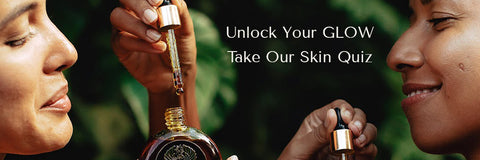
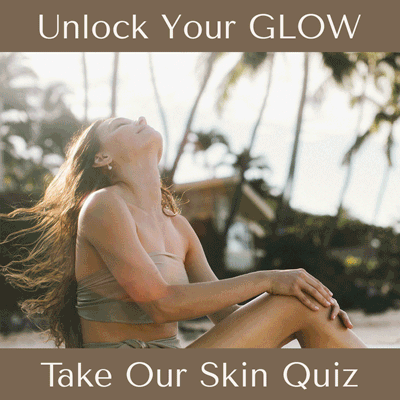
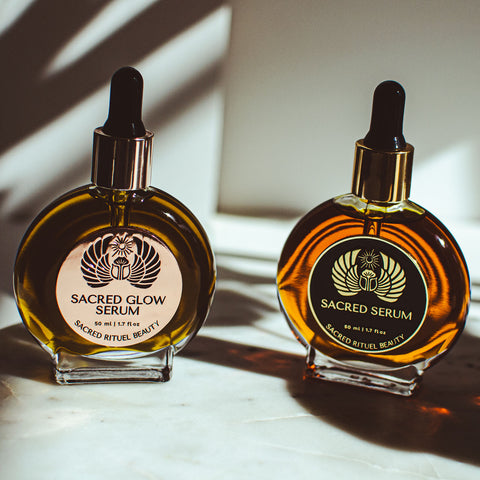
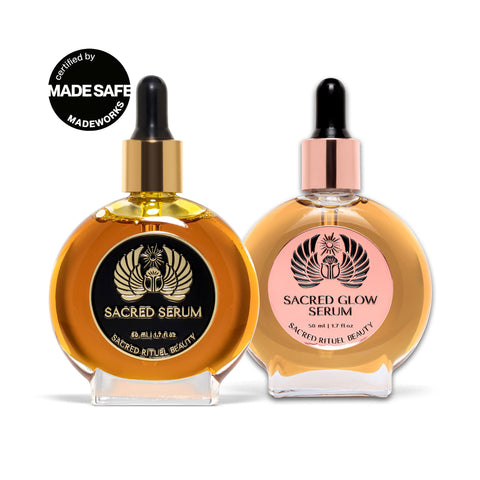
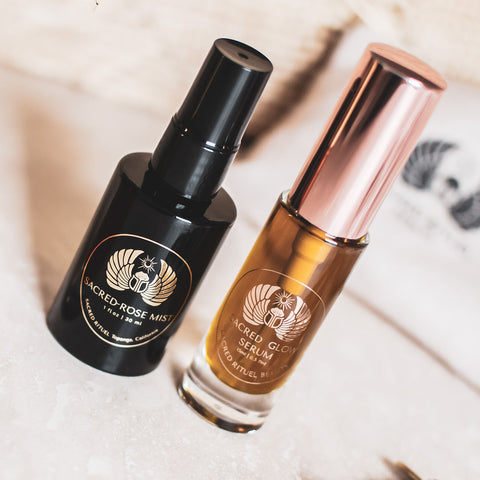
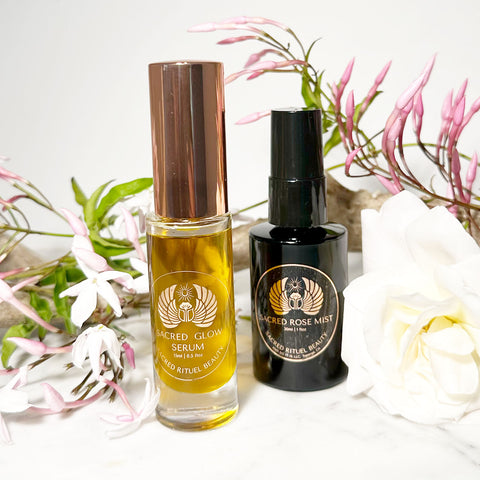
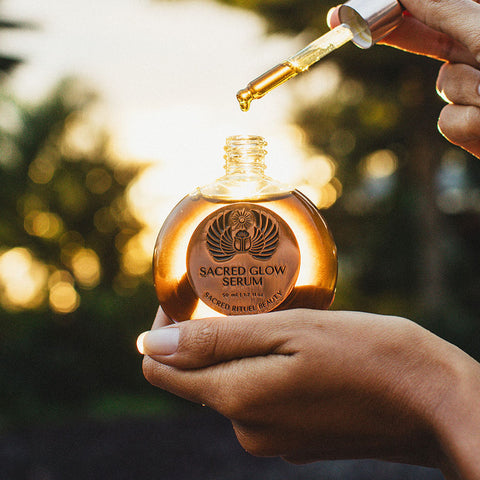
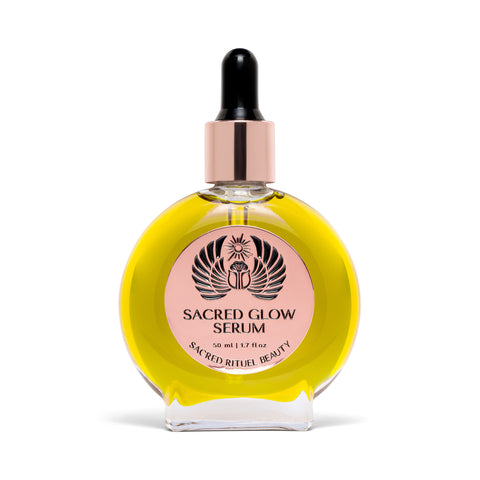
Comments (0)
There are no comments for this article. Be the first one to leave a message!